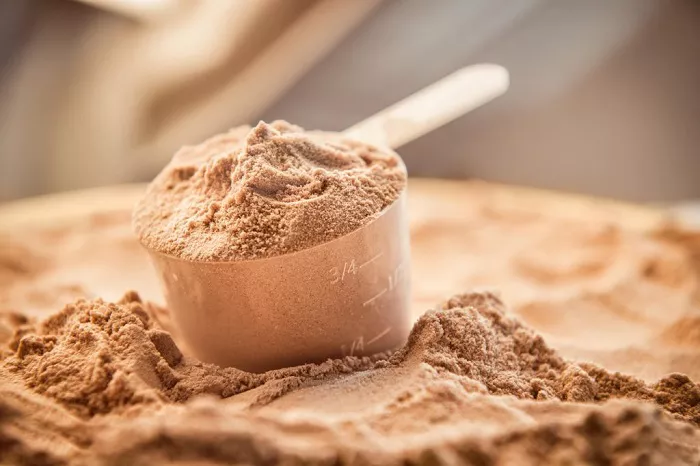In the world of fitness and nutrition, protein shakes have become a staple for many individuals looking to optimize their workouts, build muscle, and enhance their overall health. Protein shakes provide a convenient and efficient way to increase your daily protein intake, but the question that often arises is, “When is the best time to drink a protein shake?” This article aims to provide a detailed exploration of this topic, offering insights into the optimal timing for consuming protein shakes to maximize their benefits.
Understanding the Role of Protein Shakes
Before we delve into the timing of protein shake consumption, it’s essential to understand the significance of protein in our diets and the specific advantages that protein shakes offer. Protein is one of the fundamental macronutrients required by our bodies. It plays a crucial role in muscle repair and growth, supports immune function, aids in the production of enzymes and hormones, and contributes to overall satiety.
Protein shakes, as the name suggests, are beverages that are rich in protein. They are typically made by mixing protein powder with water, milk, or other liquids. These shakes are a convenient way to increase your protein intake, especially for individuals with busy lifestyles or those engaged in regular physical activity. The protein content in these shakes can vary, with options ranging from whey and casein to plant-based proteins like pea, soy, or hemp.
Protein Shake Timing: A Matter of Personal Goals
The optimal time to consume a protein shake can vary based on an individual’s goals, daily routine, and nutritional needs. There is no one-size-fits-all answer to this question, as different scenarios warrant different timing strategies. To determine the best time for you to drink a protein shake, consider your specific objectives:
Pre-Workout Protein Shake: For those looking to enhance their exercise performance and support muscle recovery, a pre-workout protein shake can be beneficial. Consuming a protein shake about 30 minutes before your workout provides your muscles with a readily available source of amino acids, which can help reduce muscle breakdown during intense training sessions.
Post-Workout Protein Shake: Post-workout protein shakes are perhaps the most commonly recommended timing. After a strenuous workout, your muscles are in a prime state to absorb nutrients, including protein. Drinking a protein shake within an hour of your workout can help kickstart the muscle recovery process and promote muscle protein synthesis.
Protein Shake as a Meal Replacement: Some individuals use protein shakes as meal replacements, especially when they are short on time or looking to control their calorie intake. In such cases, protein shakes can be consumed as a substitute for breakfast, lunch, or dinner. This approach can help with weight management and provide a convenient way to meet your protein goals.
Bedtime Protein Shake: Consuming a protein shake before bedtime can be beneficial for muscle repair and growth during the night. Casein protein, a slow-digesting protein source, is often recommended for this purpose. It releases amino acids gradually, providing a sustained source of nutrients to your muscles as you sleep.
Protein Shake as a Snack: Protein shakes can also be consumed as a mid-day snack to curb hunger and provide an energy boost. This can be particularly useful for those trying to maintain a balanced diet throughout the day.
Protein Shake for Muscle Recovery: If your primary goal is to support muscle recovery and minimize muscle soreness, consider consuming a protein shake immediately after your workout. This rapid intake of protein can aid in repairing and rebuilding muscle tissue.
Factors Influencing Protein Shake Timing
Determining the optimal time to drink a protein shake also depends on various factors beyond your goals. Here are some key considerations:
Individual Preferences: Some individuals prefer the convenience of a protein shake immediately after their workout, while others may find it more convenient to have it as a meal replacement or a snack. Choose a timing that aligns with your daily routine and preferences.
Digestion Rate of Protein: The type of protein powder you use can affect timing. Whey protein is rapidly absorbed, making it suitable for post-workout shakes, while casein protein digests slowly, making it ideal for bedtime or as a meal replacement.
Overall Diet: Your overall diet plays a crucial role in protein shake timing. If you are already consuming adequate protein through whole foods, the timing of your protein shake may have less impact. However, if you have specific protein goals, timing becomes more critical.
Training Schedule: If you work out at different times of the day, adjust your protein shake timing accordingly. Ensure that you are providing your muscles with the necessary nutrients when they need them most.
The Pre-Workout Protein Shake
A pre-workout protein shake has gained popularity among fitness enthusiasts for its potential to boost energy levels, enhance endurance, and improve muscle protein synthesis during exercise. While it may not be necessary for everyone, it can be advantageous for those with specific fitness goals.
Consuming a protein shake about 30 minutes to an hour before your workout allows your body to access amino acids and nutrients while you exercise. This can lead to several benefits:
Increased Energy: The carbohydrates and protein in the shake can provide a quick source of energy, helping you perform at your best during your workout.
Reduced Muscle Breakdown: By supplying your muscles with amino acids before exercise, you can help minimize muscle breakdown (catabolism) during intense training sessions.
Enhanced Recovery: A pre-workout protein shake can also kickstart the muscle recovery process, making it easier for your body to repair and grow muscle tissue.
To make an effective pre-workout protein shake, consider using a protein powder with a balanced mix of fast-digesting and slow-digesting proteins. Additionally, you may include a source of carbohydrates, such as fruit or oats, to provide sustained energy throughout your workout.
The Post-Workout Protein Shake
Perhaps the most widely recognized and practiced timing for protein shake consumption is post-workout. This timing is rooted in the concept of the “anabolic window” or “muscle protein synthesis window,” which suggests that there is a limited time frame immediately after exercise when your muscles are most receptive to nutrients, particularly protein.
Drinking a protein shake within an hour of completing your workout is believed to offer several advantages:
Muscle Recovery: Post-workout protein shakes can kickstart the muscle recovery process by providing your muscles with the necessary amino acids to repair and rebuild damaged muscle fibers.
Muscle Protein Synthesis: Protein shakes post-workout stimulate muscle protein synthesis, which is the process of building new muscle tissue. This can lead to greater muscle growth and adaptation to training.
Reduced Muscle Soreness: Consuming protein after a workout may help reduce delayed onset muscle soreness (DOMS), allowing you to recover more quickly and get back to your training routine.
It’s worth noting that the “anabolic window” concept has been debated in recent years, with some research suggesting that the timing of protein intake may not be as critical as once believed. However, the consensus remains that post-workout protein consumption can be beneficial, especially if you are training intensely and frequently.
Protein Shake as a Meal Replacement
For individuals looking to manage their calorie intake, control portion sizes, or simply enjoy the convenience of a quick and nutritious meal, protein shakes can serve as effective meal replacements. This approach allows you to regulate your overall calorie intake while ensuring you meet your protein requirements.
Replacing a meal with a protein shake can be a practical option for various reasons:
Weight Management: Protein shakes can help with weight loss or weight maintenance by providing a controlled portion of calories and promoting a feeling of fullness.
Convenience: Busy schedules often lead to skipped meals. Protein shakes are quick to prepare and easy to consume, making them a convenient choice for those on the go.
Balanced Nutrition: High-quality protein powders often contain essential vitamins and minerals, providing a well-rounded nutritional profile.
When using a protein shake as a meal replacement, it’s essential to choose a protein powder that offers a balanced combination of protein, carbohydrates, and fats. Additionally, consider adding fiber-rich ingredients like vegetables or fruits to enhance the nutritional value of your shake.
Bedtime Protein Shake: Fueling Muscle Recovery While You Sleep
Consuming a protein shake before bedtime is a strategy employed by many athletes and fitness enthusiasts to support overnight muscle recovery and growth. The key to this timing strategy is selecting a protein source that digests slowly and steadily throughout the night.
Casein protein, derived from milk, is an ideal choice for a bedtime protein shake. Unlike whey protein, which is rapidly absorbed, casein forms a gel-like substance in your stomach, leading to a slow and sustained release of amino acids into your bloodstream. This prolonged nutrient delivery can benefit your muscles during the nighttime fasting period.
The benefits of a bedtime protein shake include:
Extended Muscle Protein Synthesis: Casein protein provides a steady supply of amino acids, promoting muscle protein synthesis throughout the night.
Reduced Muscle Breakdown: By preventing the breakdown of muscle tissue, a bedtime protein shake can help preserve your hard-earned gains.
Improved Morning Recovery: Waking up with less muscle soreness and feeling more recovered can enhance the quality of your workouts and overall physical performance.
When preparing a bedtime protein shake, mix casein protein powder with water or milk and consider adding a small amount of healthy fats, such as almond butter or flaxseeds, to slow down digestion even further.
Protein Shake as a Snack
In addition to being consumed as a meal replacement, protein shakes can also serve as satisfying snacks between meals. Incorporating protein-rich snacks into your daily routine can help stabilize blood sugar levels, control hunger, and prevent overeating during main meals.
Protein shakes make excellent snacks because they are:
Portable: You can prepare a protein shake and take it with you wherever you go, making it a convenient option for mid-day snacks.
Satiating: Protein is known for its ability to promote a feeling of fullness, which can help curb unhealthy snacking habits.
Nutrient-Dense: High-quality protein powders often contain essential vitamins and minerals, providing a nutritious snack option.
To make a protein shake as a snack, simply adjust the portion size to fit your caloric and nutritional needs. You can also experiment with different flavors and ingredients to keep your snacks interesting and enjoyable.
Protein Shake for Muscle Recovery
If your primary goal is to support muscle recovery and minimize muscle soreness, the timing of your protein shake immediately after your workout is crucial. This is often referred to as the “anabolic window” or “golden hour,” during which your muscles are most primed for nutrient absorption.
The benefits of a post-workout protein shake for muscle recovery include:
Accelerated Recovery: Rapidly providing your muscles with amino acids can accelerate the repair and growth of muscle tissue.
Reduced Muscle Soreness: Consuming protein post-workout may help reduce the severity and duration of muscle soreness, allowing you to return to training sooner.
Optimal Adaptation: Timing your protein intake to match your workout can help optimize the adaptations your body makes in response to training, leading to greater gains in strength and muscle mass.
To make the most of this timing strategy, choose a high-quality protein powder that contains a mix of fast-digesting and slow-digesting proteins. Fast-digesting proteins like whey can provide a quick influx of amino acids, while slower-digesting proteins like casein can sustain amino acid release over time.
Factors Influencing Protein Shake Timing
While the timing options discussed above are commonly recommended, it’s important to remember that individual preferences, goals, and lifestyles play a significant role in determining the best time to drink a protein shake. Here are some factors to consider when deciding on your ideal timing:
1. Individual Goals: Your specific fitness and nutrition goals should guide your protein shake timing. If you prioritize muscle growth and recovery, post-workout and bedtime shakes may be particularly beneficial. On the other hand, if you’re looking to manage weight or curb hunger, meal replacements and snacks may be more suitable.
2. Digestion Rate of Protein: Different protein sources digest at varying rates. Whey protein digests quickly, making it suitable for pre- and post-workout shakes. Casein protein digests slowly and is ideal for bedtime shakes. Consider the protein source that aligns with your chosen timing.
3. Overall Diet: Evaluate your overall diet to ensure you’re meeting your daily protein needs. If you’re already consuming sufficient protein through whole foods, the timing of your protein shake may be less critical. Adjust your shake timing based on the gaps in your dietary protein intake.
4. Training Schedule: The time of day when you work out can influence your protein shake timing. If you exercise in the morning, a post-workout shake may be more convenient. For evening exercisers, a bedtime shake or a snack during the day may be preferable.
5. Personal Schedule: Your daily routine and schedule also play a role. Choose a timing strategy that fits seamlessly into your day-to-day life to ensure consistency in your protein intake.
6. Tolerance and Digestive Sensitivity: Some individuals may experience digestive discomfort when consuming protein shakes immediately before or after a workout. Experiment with different timings to find what works best for your digestive system.
Conclusion
In the world of fitness and nutrition, protein shakes are a versatile tool that can support a wide range of goals, from muscle growth and recovery to weight management and overall health. When considering the best time to drink a protein shake, it’s essential to align your timing with your individual objectives, lifestyle, and dietary preferences.
Whether you opt for a pre-workout shake to boost energy, a post-workout shake to aid recovery, a meal replacement for convenience, a bedtime shake for overnight muscle support, or a snack to control hunger, protein shakes offer flexibility and adaptability. The key is to make informed choices that help you achieve your specific goals while enjoying the benefits of increased protein intake.
Incorporating protein shakes into your daily routine can be a valuable addition to your nutrition plan, provided you choose the timing that aligns with your goals and preferences. Ultimately, the best time to drink a protein shake is the time that helps you stay consistent and enjoy the journey towards a healthier, more active lifestyle.
So, whether it’s a pre-workout protein shake to power your training session or a bedtime shake to support nighttime recovery, seize the opportunity to make protein shakes a part of your daily routine and enhance your overall well-being.
[inline_related_posts title=”You Might Be Interested In” title_align=”left” style=”list” number=”6″ align=”none” ids=”2756,2749,2745″ by=”categories” orderby=”rand” order=”DESC” hide_thumb=”no” thumb_right=”no” views=”no” date=”yes” grid_columns=”2″ post_type=”” tax=””]


































